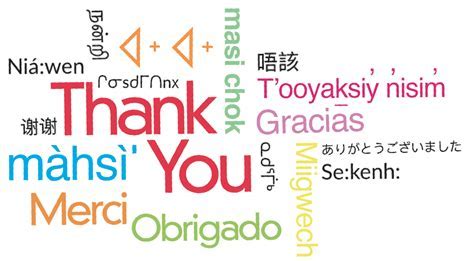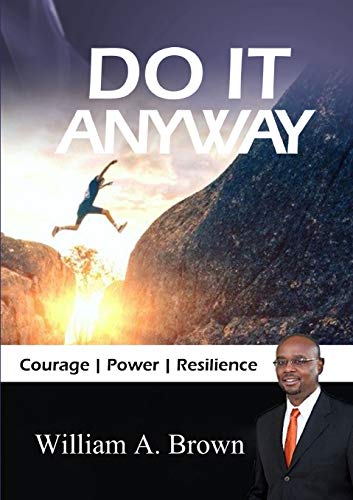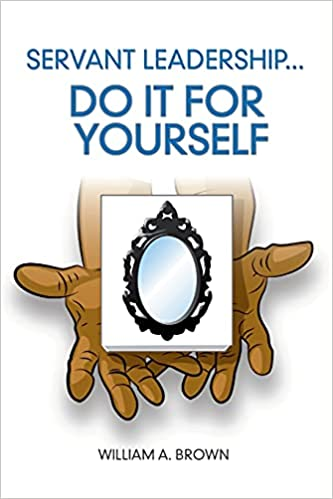Article-Detail

Gratitude is Good for Business
Every time I go to a new organization, I very soon get an email or message with some version of this, “In all the time I’ve been here, I’ve never received something like this” after receiving a ‘Thank You’ card from me. Sometimes they list the amount of time they’ve been in the organization, i.e. 15-20 years, sometimes they mention the number of managers they’ve had. In all cases, they are describing the fact that they have never received a message of appreciation from a manager. I’ve read somewhere that thank yous are so extraordinary to people because they are so rare. The messages I receive from employees are evidence of this. At this point in my career, when I join a new team, this message is something I look forward to. You never know where it’s going to come from, and it would take too much effort to manipulate one person, so I practice it with everyone. The point of this article is to discuss the power of recognition whether through thank yous, birthdays, or other gestures of gratitude and its impact on the careers of the leader.
In 2001, a conversation with one of my leaders inspired the practice of “Thank You” notes that I continue to this day. This leader would send out thank you notes to her team for any number of reasons. Later, when she visited those employees she would see her notes prominently displayed on their wall. This was an indication to her that her notes mattered to her employees and the reason she shared it with me. In our conversation, she explained this to me and I wasn’t completely convinced but gave it a try anyway. What happened changed the direction of my career forever. I received emails, visits, words of appreciation and support that I hadn’t seen before. I got a huge return on my investment in gratitude. When I got a chance to speak with her again, I said it was a ‘stroke of genius’. Now, I start work relationships off with the practice of acknowledging the work that people do, and the result is remarkable. My relationships start out on good footing instead of unfamiliar reluctance. Since that time, I started looking into the practice of saying “Thank You”, the psychology of appreciation, and the impact it can have on the leadership experience in general.
Keep in mind, all people are the same, criticism causes anxiety. Anxiety is a main cause of psychological harm that results in self criticism, stress and insecurity which negatively impacts production. Saying thank you is a good way of combating insecurity and self criticism in employees. Appreciation also reduces the feeling that their work is out of obligation. I’ve written about The Benjamin Franklin Effect where psychologists have confirmed what Ben Franklin observed over 200 years ago, a person who does you a favor will like you more. So you treat their work as a favor to you. Coach Tony Dungy writes about this in his book The Mentor Leader, that we should treat employees like volunteers. When we deal with volunteers, we expect that mistakes will be made and forgive them, we will spend time seeking them out just to check in, and we will go out of our way to say thank you. Practices that all but disappear once the newness wears off of an employee. In short, gratitude is good for business.
My practice of sending regular messages of acknowledgement and birthday notes to employees, memorializing important days has yielded a return that can not be replicated with any other practice. I start this practice as early as possible, before there is any chance of me making a mistake that could compromise my standing with my employees but it can be started at any time. All you need is an attitude of gratitude. On the other side of criticism is gratitude. Gratitude produces security which validates and strengthens an employee’s view of self which improves performance. So much time at work is spent focusing on the negative, there needs to be a conscious effort to shine a light on the positive. A ton of research has revealed to us that acknowledgement of things done well improves morale.
In 2010 Adam Grant and Francesco Gino studied the effect gratitude has on people being thanked. 69 people were asked to provide feedback to a fictitious student on his cover letter. After sending feedback through email, they were sent a reply from the student and a request for more help. Half received a thankful reply, half received a neutral reply. 32% of people who received the neutral letter offered more help, 66% of people who received a thankful letter offered more help. What Grant and Gino found was, people who feel valued are willing to do more. Also, this good feeling is felt by people who witness gratitude. Others who see you expressing gratitude will want to do more too. This echoing good feeling around the organization elevates morale for everyone, employers and employees alike.
The leader’s practice of reflecting on positive events has a positive effect on the employer. Martin Seligman studies techniques for making people happier and his top three practices were 1. Remembering three positive experiences at the end of each day, 2. Identifying a main strength and applying it, and 3. Writing a letter of gratitude to somebody and delivering it personally. The practice of thank you notes employs all of Seligman’s three top techniques. What may be an unexpected benefit is, the good feeling that comes from reflecting on the positive means that this practice begins paying off before you ever pick up a card or pencil.
Thank yous can be done in person, in a memo or an email, through a card, or during a meeting. Acknowledgement feeds a need that we all have to feel like we have value and that value is recognized by others. In my experience, it has been essential to building positive culture and morale among employees. It can help you too. I have said it at least a thousand times and I’ll say it again, leadership is tough. There are any number of constituents and issues constantly pulling at your attention so carving out time for something squishy may not seem worth it. It didn’t to me either until that conversation I had with my friend. Today, she is a rising star, serving as a school district superintendent and is beloved. What you see after adding written gratitude to your practices will convince you that the investment of time is more than worth it, to quote George Zimmer, “I guarantee it”.
Recently, one of my children got a flat tire. We didn’t find it until it was late in the afternoon on a Saturday meaning most tire shops were closed. We took a chance and googled it anyway and found one would be open until 6, it was 5:20. By the time we got the tire off and made it to the shop, the mechanic was reaching for the chord that closes the bay doors to his work area. We stopped in front of him and asked if he could do one more. He agreed, fixed the flat, and repaired the spare that was going flat too. He could have pulled that bay door down, closed up shop, and told us to come back on Monday, instead he took care of us. On our way out we thanked him and his boss for their kindness. There is a 66% chance that if one of you pulled up at closing time, he will help you too, you’re welcome (smile). Spread gratitude and SOAR!
William A. Brown
August 23, 2020
https://psychcentral.com/blog/why-thank-you-is-more-than-just-good-manners/




